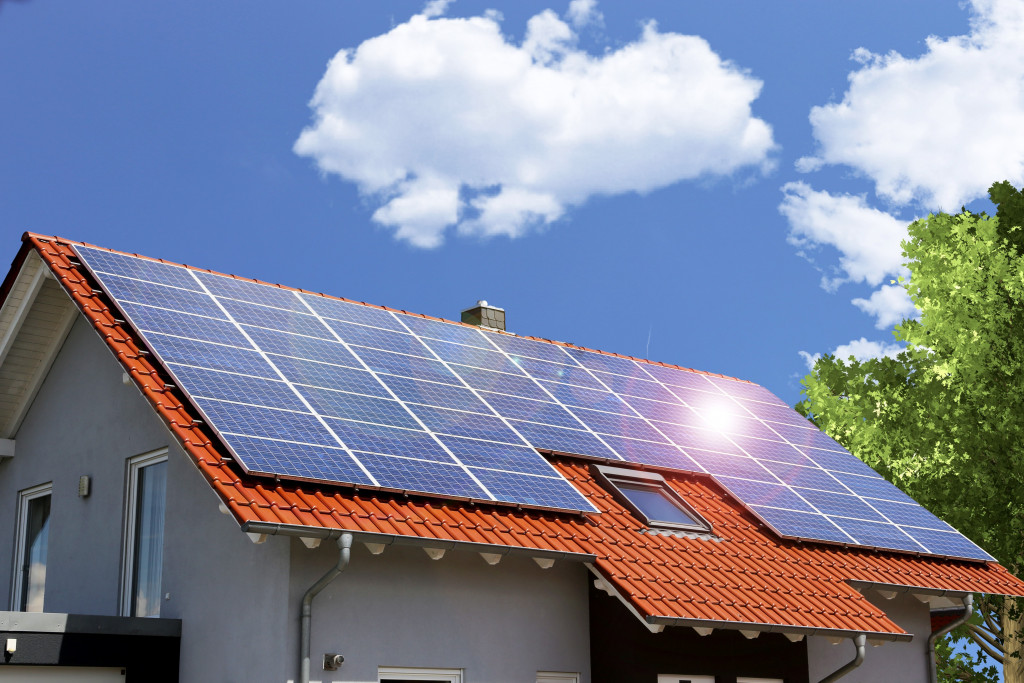If you’re like most of us, you probably don’t worry about your roof until it needs to be fixed or repaired. However, the kind or type of roofing you have impacted not just your home’s visual or appearance and vibe, but it can also affect the total worth of the home. Furthermore, the kind of roof you have can make your house more energy-efficient, impenetrable, and give additional space or even an extra living area in the shape of a loft.
Do you know what kind of roof you presently have or the specifics of the home’s roofing system you’re thinking about buying? Do you have any plans to construct a house, replace your roof, or purchase a new house in the near future? Have you lately been through a significant weather catastrophe or natural disaster, such as roof hail damage?
Other important things to consider are if you want to accommodate solar panels or even other energy-efficient or “environmental” elements. Do you desire the additional dwelling or space for storage that a more expensive mansard or gambrel roof provides, or do you prefer something more cost-effective? All of these issues, and more, should be addressed before purchasing a new property, constructing a house, or repairing and upgrading your home’s roof.
Roofs popular in your area or region can be preferred because they function well with the weather patterns. You can also Google various roofs with images to observe how different roof layouts and roof type names seem in actual situations. Furthermore, you should be aware of the various roof names for the different sorts because a reputable roofing business or an architect in your region would most likely use these words.
Furthermore, you should be familiar with the appearance of each kind of roof so that you can express precisely what you want! Moreover, you should be aware of what kind or style of roof works best in your specific area and environment since the weather will undoubtedly influence the condition and state of your roof.
Check out what kinds of roofs are common in your community and general region, conduct your study, and continue reading to discover more about the various roof designs and what type of roof works best in different parts of the United States.

Solar Panels
Advanced solar collectors easily fit into existing shingles, producing up to 1 kilowatt of electricity per 100 square feet. They’re handy for sunny rooftops in homeowners’ associations that prohibit traditional solar panels. While they can assist offset energy expenses via solar electricity, they are also more expensive than conventional solar alternatives.
Shingles made of asphalt
Asphalt shingles are the most popular roofing material in the United States since they are efficient in all weather situations. Ask if they complete the ASTM D3161, Class F (110 mph) or ASTM D7158, Class H (150 mph) wind tests, as well as the AC438 endurance test. Although the initial expenses are modest, you should intend to replace the shingles after approximately 20 years. Choose shock-absorbent shingles with a UL 2218 Class 4 certification if you reside in a hail-prone region. Shock absorbent shingles can qualify for a reduction in your homeowner’s insurance rate.
Roofing Made of Metal
Vertical panels or shingles that look like slate, tile, or shaking can be installed over metal roofs and have a lifetime of about 60 years, according to the manufacturer. Strong winds are no match for metal, which sheds heavy snow and rain with ease, does not burn, and is resistant to corrosion. It is lightweight and straightforward to erect over existing roofs. While metal is less noisy during downpours, it is more susceptible to deformation from hail.
Steel with a stone coating
Slab, clay, or shingle interlocking panels are resistant to damage caused by heavy rains (up to 8.8 inches per hour), 120-mph winds, shakes, hail, and freeze-thaw cycles. As a consequence, they are an economical choice for wet, windy settings or fire-proof places. Some roofing in stone is provided with a lifetime guarantee.
Slate
Slate roofing has the potential to last for more than a century. It is non-combustible, waterproof, and mold and fungus resistant, among other characteristics. Slate is an excellent choice for wet regions, but it is expensive, heavy, and easily broken when stepped on. Keep this in mind if you live in an area where hail is a frequent occurrence.
The ideal kind of roof for you is determined by your environment, budget, and home. Talk with certified roofers and look at some recent buildings in your region to obtain ideas on what kind of roofing material to choose. Regardless of the type of roof you choose, it is always possible to be damaged. Roofing can be costly, so you want to be sure you’re protected if anything goes wrong.







